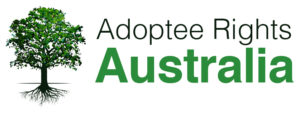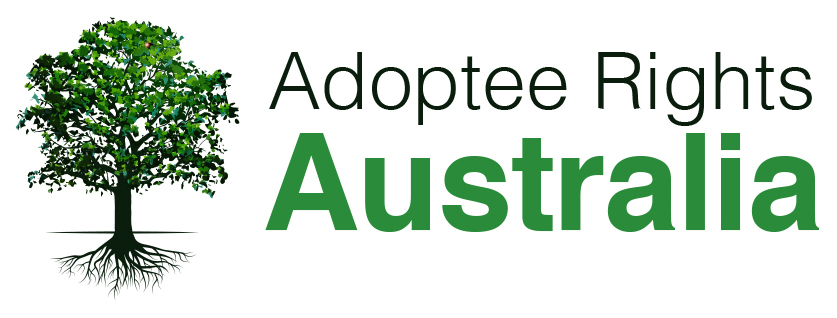
Reporting on the outcome of the Bill aiming to prioritise adoption over long-term care arrangements and fast-track adoption in Queensland in the ABC article: “Contentious bill over child adoptions passes in Queensland Parliament despite concerns” by Emilie Gramenz on the 24th March 2021 – is yet another example of adoption news reporting which treats the voices and existence of the majority of adoptees and potential adoptees as if they are invisible. This continued silencing, invalidation and contribution to the invisibility of adopted people needs to end.
The article begins with the statement that this Bill has been approved “…despite concerns raised by Aboriginal and Torres Strait Island services,” and this makes it seem that concerns about adoption in this Bill were not about adoption itself – that adoption is not contentious at all unless it is applied to certain groups.
Despite the majority of the 39 submissions to the previous Committee before the same Bill lapsed, plus the majority of the 15 submissions to the final Committee that had concerns about the prioritisation of adoption for *any* child in care, the issue has been portrayed throughout this article as one that is problematic only for Aboriginal and Torres Strait Islander people.
Concern about the adoption of Aboriginal and Torres Strait Islander children – who make up around one third of children in care – is entirely warranted, but this should not mean that the views about prioritising adoption in general – for all potentially adoptable children – which were reflected in most submissions should be ignored.
Common issues raised in the submissions included:
- contravention of human rights
- replacement of birth certificates
- loss of identity, ancestry and relationship rights
- the lack of follow up welfare checks and accountability
- long-term negative effects of adoption over the lifespan for anyone who is adopted; and
- intergenerational trauma
These are issues that affect every adopted person.
Adoptees (all of us) are invisible by definition: on adoption our true birth certificates and identity is cancelled, and a new, falsified birth certificate is created. The components that make up a fundamental part of a human being’s identity – our name, culture, ancestry, who our relatives are, are all replaced by those of our new carers. No flags which would identify us as not being biologically related to those caring for us are allowed to remain. We disappear on the order that we are “as if born to” genetic strangers. How can something with such a fundamental impact on a human being’s life and identity only be considered to be of significance if it happens to one group of people?
In this Inquiry an overwhelming majority of large and small stakeholder organisations; individuals who have lived experience of adoption; adoptee-run organisations like Queensland based Association 4 Adoptees and our national organisation, Adoptee Rights Australia, talked about the problems with adoption for anybody who becomes adopted. Yet the substance of these submissions appears to have been lost – an “adoption blind spot” phenomenon that advocates for adoptee rights are far too familiar with.
The awareness of the influence of how marginalised groups are portrayed in the media is becoming recognised. Advocates need to similarly call out exclusionary reporting that contributes to the silencing, invalidation and invisibility of adopted people and the fueling of an incredibly skewed perception of adoption in the public consciousness every time it happens – which unfortunately for now is usually every time adoption news is reported at all.
By Sharyn White
